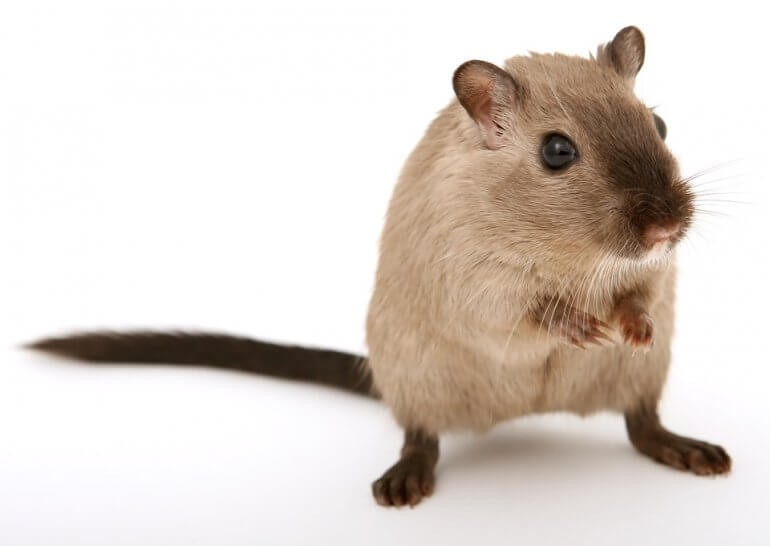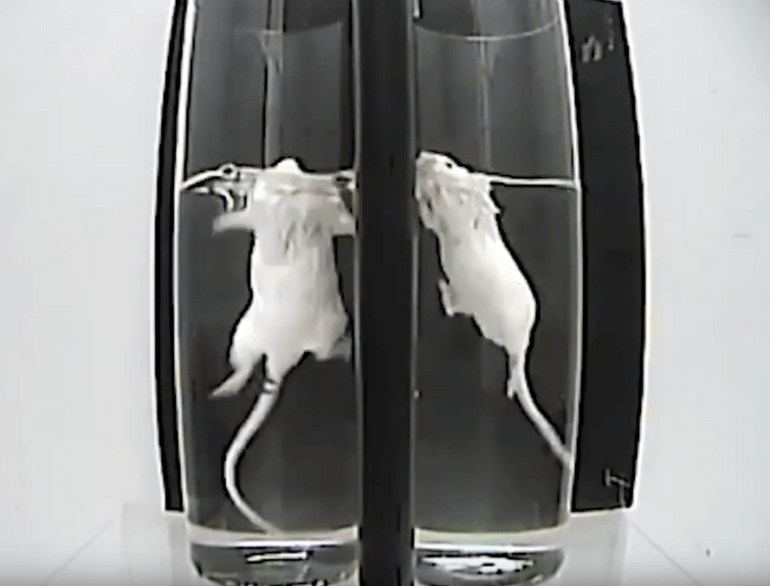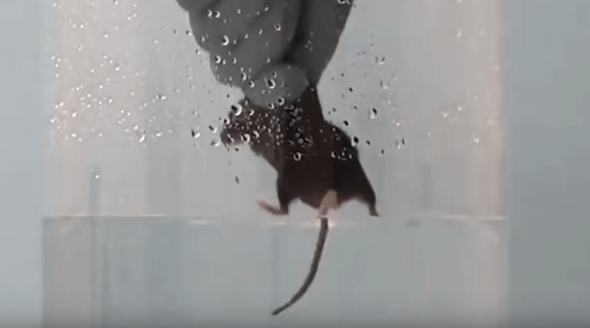University of Adelaide Ends Forced Swim Test on Animals
Huge news! The University of Adelaide has become one of the first in Australia to declare that it will stop subjecting mice and other animals to the cruel forced swim test.

The milestone comes after PETA Australia and Humane Research Australia wrote to the university because experimenters there had published about conducting the forced swim test as recently as April of this year.
What Is the Forced Swim Test?
In the widely discredited test – which is typically conducted in an attempt to study human depression – mice, rats, guinea pigs, hamsters, and gerbils are forced into inescapable beakers filled with water, as shown in the footage below.
In these near-drowning experiments, the panicked animals try to escape by attempting to climb up the sides of the beakers or even diving underwater in search of an exit. They paddle furiously, desperately trying to keep their heads above water.
Experimenters time how long it takes for them to stop struggling and begin to float, arguing that those who swim for less time are in a state of “despair”. The test has been heavily criticised by scientists who argue that floating is not a sign of depression or despair, as others claim, but rather a positive sign of learning, conserving energy, and adapting to a new environment.
Ultimately, the test is an extremely poor predictor of whether a drug will work to treat depression in humans.
The forced swim test is cruel, and it’s bad science. These experiments do nothing more than terrify animals and delay the development of effective treatments that are so desperately needed.
What You Can Do
Pharmaceutical giant Eli Lilly has refused to enact a ban on this cruel and useless test. Below, you can contact the company with the quick click of a button to let it know that experiments on animals are unethical and a waste of both resources and lives.





